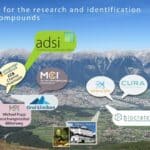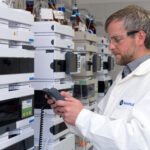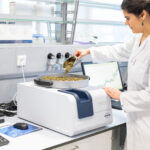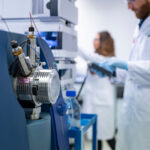Translational Research
The main goals are new therapeutic methods for chronical inflammatory diseases, metabolic diseases like diabetes, and cancer. An extensive institute laboratory of roughly 200m2 was equipped with modern, state of the art analytical devices. One of the most powerful mass-spectrometer currently available stands at the heart of this laboratory.
Interconnectivity between economics and science are the key to the further development of the research site and the creation of highly qualified jobs.
Huge Potential for Various Applications
With additional funding, the Science Hub Phytovalley was able to strengthen its leading position and competence in phyto research. The entirety of the value chain, from basic to applied research, all the way to production, can now be covered within the region. Furthermore, concrete plans have been made for the cultivation of test plants for medicinal use, under the foundation of a second endowment professorship.
Even now, over a 100 scientists are conducting research into new active ingredients from nature, at the institute for analytical chemistry and pharmaceuticals at the University of Innsbruck and at the Austrian Drug Screening Institute (ADSI). Only around 5-10% of the around 400,000 plants worldwide, have been chemically analyzed. This means that there is huge potential for new discoveries and variety of new applications.
Bionorica Invests 40 Million Euros
Bionorica’s subsidiary company, Bionorica Research GmbH, was established in Innsbruck in 2005, and has since invested over 40 million euros into research in to Phytovalley. 140 new jobs will be generated at this location in Innsbruck. The newly founded research institution is privately funded by the Michael A. Popp Nature Science Foundation and the state of Tyrol.





